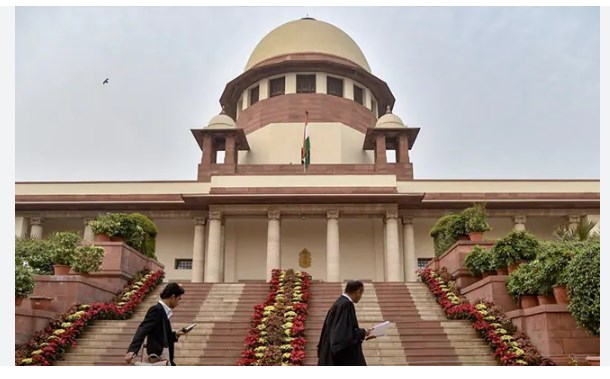The Supreme Court on Tuesday declined to grant legal recognition to same-sex marriages, holding that it is only for Parliament and state legislatures to create such institutions and grant them legal validation.The constitution bench of five judges, comprising Chief Justice of India Dhananjaya Y Chandrachud and justices Sanjay Kishan Kaul, S Ravindra Bhat, Hima Kohli and PS Narasimha, were unanimous that it is beyond the remit of courts to issue a positive direction to the legislature to accord legal recognition to same-sex marriages.
The judges were also unanimous in giving a go ahead to a high-powered committee proposed by the Centre in May to examine the concerns of same-sex couples and moot certain corrective measures.
The judgments, separately authored by the CJI and justices Kaul, Bhat and Narasimha, also refused to annul or tweak the provisions of the Special Marriage Act (SMA) to include non-heterosexual couples within its fold, even as they declared that queer couples have a right to cohabit without any threat of violence, coercion of interference.
The judges, however, were a divided lot in deciding how far the court could go with the majority of three judges rejecting the view that there can be a right to form civil unions and that the State would be under an obligation to ensure a bouquet of benefits for the non-heterosexual couples, as permissible under the law.
The CJI and justice Kaul ruled in favour of recognising a right to form a civil union, but justices Bhat, Kohli and Narasimha emphasised that there is no unqualified right to marriage under the Constitution and thus, it cannot be recognised as a fundamental right. When the right to marry is not a fundamental right but just a statutory right, the majority held that there cannot be a right to civil union that can be legally enforceable.
By the same majority, the court also held that non-heterosexual couples cannot be granted the right to jointly adopt a child.
Following a marathon hearing that lasted ten days of intense arguments from both sides in March and April, the five-judge bench on May 11 reserved its verdict in a batch of over 20 petitions that implored the judiciary to step in owing to the alleged failure of the executive to take the lead and grant the same-sex couples equality with heterosexual couples in matters of marriage and incidents of a marriage, including adoption, succession, inheritance, divorce, among others.
The court had at the time clarified that the remit of the proceedings would confine to legal validation of same-sex marriage within the fold of the Special Marriage Act (SMA).
Following a marathon hearing that lasted ten days of intense arguments from both sides in March and April, the five-judge bench on May 11 reserved its verdict in a batch of over 20 petitions that implored the judiciary to step in owing to the alleged failure of the executive to take the lead and grant the same-sex couples equality with heterosexual couples in matters of marriage and incidents of a marriage, including adoption, succession, inheritance, divorce, among others.
The court had at the time clarified that the remit of the proceedings would confine to legal validation of same-sex marriage within the fold of the Special Marriage Act (SMA).
Leave a comment
Your email address will not be published. Required fields are marked *


